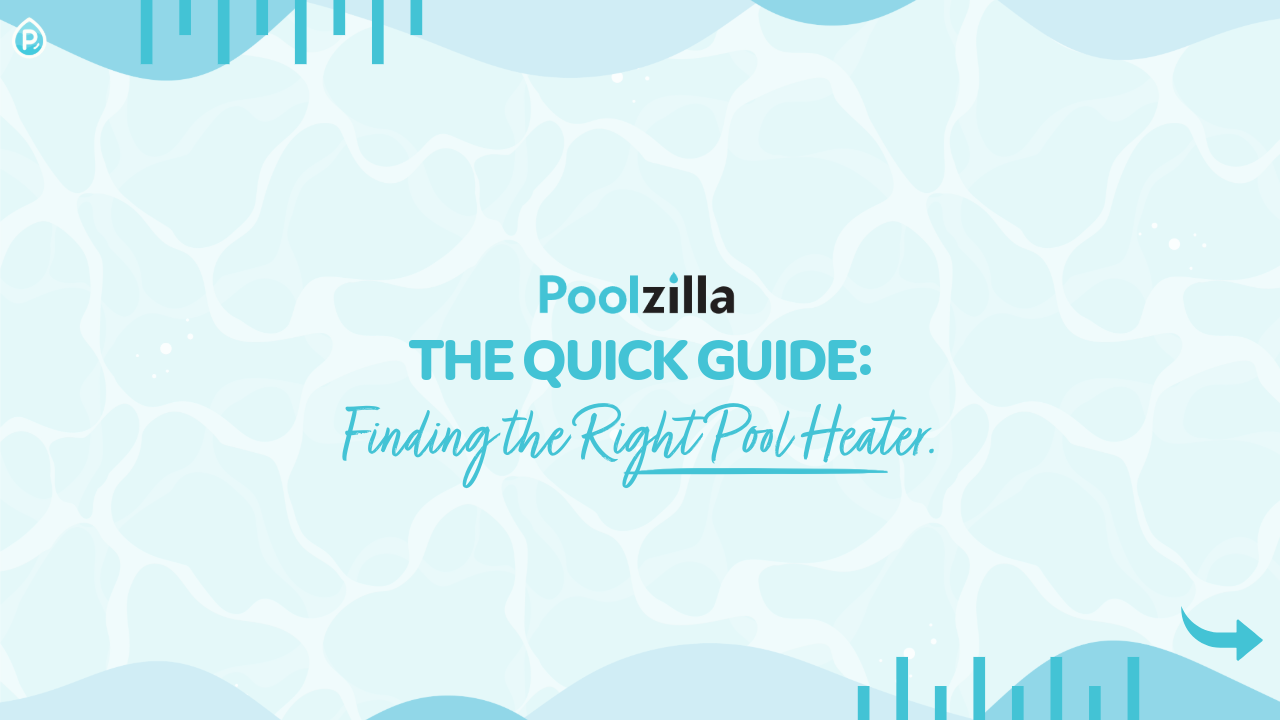Whether you're prepared to dive-in in the early spring, late fall, or really just love warm water year-round. A pool heater makes it possible for you to enjoy your pool longer!
Let’s simplify the varying types of pool heating systems!

Gas Pool Heaters
Gas heaters use natural gas or propane to heat up the pool water quickly.
To put it simply: water that is pulled in from the pool is funneled through the equipment and into the heater, then the gas burns in the heater's combustion chamber, warming the water, that is then returned to the pool.
Pros:
Heats pool water quickly for fast on-demand use! Ideal for quick swim sessions.
Performance is unaffected by external conditions, such as weather, sunlight, etc.
Self contained system, can be turned on and off when needed, for energy-conscious swimmers.
Cons:
Use of propane or natural gas has the potential for higher fuel costs.
Less energy-efficient than other heater types, more energy is needed to heat the same volume of water compared to heat pumps or solar models.
May require additional installation of a natural gas line or propane tanks if not already available.

Electric Heat Pumps
Heat pumps are designed to extract heat from the surrounding air (or ground) and convert it into heat for your water.
They don’t generate heat like a furnace, instead, they use electricity to run a compressor and move heat from the outside, warming the water more naturally.
Pros:
Uses far less electricity than resistance heaters or gas units.
Ideal for regular use, offers lower operating costs over time.
No fuel emissions, just electricity and ambient heat.
Cons:
Not designed for rapid heating, best for maintaining warmth rather than fast heat-ups.
Heat pumps are known to be less effective below 50°F (10°C).
Initial investment is higher, (but offers long-term savings.)

Solar Pool Heaters
Solar heaters are designed to use panels that absorb the sun's light, converting this energy into power that warms up the circulating pool water.
The pool water is pumped through solar collectors, usually panels or tubes mounted on the roof or near the pool. As water flows through these collectors, it’s heated by the sun before returning to the pool. A circulation pump keeps the water moving, and usually a control valve directs it through the system when there’s enough sunlight.
Pros:
Lowest operating costs (by using free solar energy)!
No fuel emissions, renewable energy that is environmentally friendly and sustainable.
Fewer moving parts, and no fuel combustion means less servicing necessary.
Cons:
Requires direct sunlight, making these less useful in colder climates or during extensively cloudy seasons.
Slower heating speed compared to other models available, more suited for maintaining temperatures over rapid heating.
High upfront installation costs, as well as need for roof access.

Ready to Find Your Perfect Pool Heater?
Whether you’re chasing energy savings, hoping for quick heating for those spontaneous pool parties, or on the hunt for an eco-friendly option, we’ve got the heater that fits your needs.
Browse our full collection of pool heaters online and keep your pool in season, no matter the time of year!
Can't find the model you're after? Let us know, we're happy to help.

